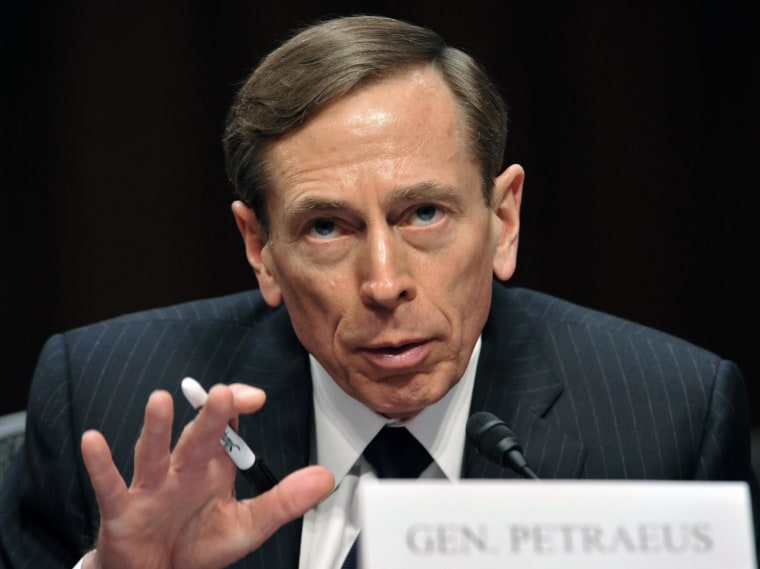For the staunchest defenders of the war in Iraq and the “surge” that quelled the last major insurgency there, no name garnered more deference than Gen. David Petraeus, the four-star general who led the U.S. effort.
But now, Petraeus is at odds with former admirers, who say that immediate military action is necessary to stabilize the country.
The retired general warned Wednesday that the political conditions now in Iraq mean that military intervention would falter because both sides would perceive the United States as favoring one religious faction against another rather than as squashing terrorism alone.
“This cannot be the United States being the air force for Shia militias, or a Shia on Sunni Arab fight,” he said at a London conference.
That aligns with President Barack Obama’s assessment that any military engagement must be conditioned on a political plan that would form a national unity government aimed at healing long-standing wounds between the clashing sectarian groups.
“In the absence of this type of political effort, short-term military action, including any assistance we might provide, won’t succeed,” Obama said last week.
Petraeus’ biggest fans on Capitol Hill, like Republicans Sen. John McCain of Arizona and Lindsey Graham of South Carolina, have advocated loudly for intervention and said their warnings about the growing insurgency should have been heeded long ago. On Wednesday night, McCain suggested that the United States should “go in, we use airpower, we get some boots on the ground, a few that can identify targets.” While Graham differs with McCain on whether the U.S. should coordinate with Iran in the effort to staunch the violence in Iraq, the South Carolina lawmaker is also among the most outspoken advocates for military action there.
The defense hawks’ admiration for Petraeus runs deep. During a presidential debate against President Barack Obama in 2008, McCain dubbed Petraeus one of the three “wisest people” whose counsel he would rely on in the Oval Office.
During the same campaign, an incensed McCain defended Petraeus against attacks by liberal group MoveOn.org, saying the anti-war organization should be “thrown out of this country” for dubbing him “General Betray Us.”
The same year, Graham did not hold back in his praise for the Iraq surge, saying Petraeus’s plan would “go down in history as one of the most successful counter-insurgency operations in history.”
Even recently, the lawmakers have advocated for Petraeus – who has largely been out of the spotlight since resigning from the CIA because of an extramarital affair – to return, along with Ambassador Ryan Crocker, to lead the U.S. strategy in Iraq.
